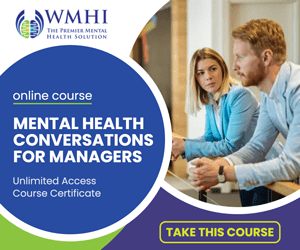In today’s fast-paced, hyper-connected world, sleep is often sacrificed in the name of productivity. We burn the midnight oil, wake up early, and rely on caffeine to power through the day. But what if the key to unlocking true productivity lies not in working more hours, but in optimizing the quality of our sleep? Sleep is not just a passive state of rest—it’s a critical biological process that affects every aspect of our physical, mental, and emotional well-being. In this article, we’ll explore the science of better sleep, practical strategies for sleep optimization, and how improving your sleep can transform your productivity.
The Science of Sleep: Why It Matters
Sleep is a complex and dynamic process that involves multiple stages, each playing a vital role in restoring and rejuvenating the body and mind. The sleep cycle consists of four stages: three stages of non-REM (rapid eye movement) sleep and one stage of REM sleep. These stages repeat cyclically throughout the night, with each cycle lasting about 90 minutes.
- Stage 1 (NREM): This is the lightest stage of sleep, where you drift in and out of wakefulness. It’s easy to wake up during this stage, and it typically lasts only a few minutes.
- Stage 2 (NREM): Your body begins to relax further, with a decrease in heart rate and body temperature. This stage prepares you for deep sleep and makes up about 50% of your total sleep time.
- Stage 3 (NREM): Also known as deep sleep or slow-wave sleep, this stage is crucial for physical recovery, immune function, and memory consolidation. It’s harder to wake up during this stage, and missing it can leave you feeling groggy and unrefreshed.
- REM Sleep: This is the stage where most dreaming occurs. REM sleep is essential for cognitive functions like problem-solving, creativity, and emotional regulation. It’s also when the brain processes and stores information from the day.
When you don’t get enough sleep or your sleep is disrupted, these stages are compromised, leading to a cascade of negative effects on your health and productivity.
The Link Between Sleep and Productivity
Productivity isn’t just about working harder or longer—it’s about working smarter. And working smarter requires a well-rested brain. Here’s how sleep impacts productivity:
- Cognitive Function: Sleep is essential for cognitive processes like attention, memory, and decision-making. A sleep-deprived brain struggles to focus, retain information, and make sound judgments, leading to mistakes and inefficiencies.
- Creativity and Problem-Solving: REM sleep, in particular, plays a key role in creative thinking and problem-solving. During REM sleep, the brain forms connections between seemingly unrelated ideas, leading to innovative solutions.
- Emotional Regulation: Lack of sleep can make you more irritable, anxious, and prone to stress. This not only affects your mental health but also your ability to collaborate and communicate effectively with others.
- Physical Energy: Sleep is when your body repairs and regenerates tissues, builds muscle, and strengthens the immune system. Poor sleep can leave you feeling physically drained, reducing your ability to perform at your best.
- Time Management: When you’re well-rested, you’re more likely to manage your time effectively and avoid procrastination. Sleep deprivation, on the other hand, can lead to poor time management and a lack of motivation.
Practical Strategies for Sleep Optimization
Now that we understand the importance of sleep, let’s dive into practical strategies for optimizing your sleep and reaping the productivity benefits.
1. Establish a Consistent Sleep Schedule
Your body thrives on routine. Going to bed and waking up at the same time every day—even on weekends—helps regulate your internal clock (circadian rhythm). This consistency makes it easier to fall asleep and wake up feeling refreshed.
2. Create a Sleep-Friendly Environment
Your bedroom should be a sanctuary for sleep. Here are some tips:
- Keep it Dark: Use blackout curtains or an eye mask to block out light.
- Keep it Cool: The ideal sleep temperature is between 60-67°F (15-19°C).
- Keep it Quiet: Use earplugs or a white noise machine to drown out disruptive sounds.
- Invest in a Comfortable Mattress and Pillows: Your sleep surface plays a huge role in sleep quality.
3. Limit Exposure to Blue Light Before Bed
Blue light from screens (phones, tablets, computers) can suppress the production of melatonin, the hormone that regulates sleep. Try to avoid screens at least an hour before bed, or use blue light-blocking glasses or apps.
4. Wind Down with a Relaxing Bedtime Routine
A calming pre-sleep routine signals to your body that it’s time to wind down. Consider activities like:
- Reading a book
- Taking a warm bath
- Practicing mindfulness or meditation
- Doing light stretching or yoga
5. Watch Your Diet and Hydration
What you eat and drink can significantly impact your sleep. Avoid heavy meals, caffeine, and alcohol close to bedtime. Instead, opt for sleep-friendly snacks like a small handful of nuts, a banana, or herbal tea.
6. Exercise Regularly
Regular physical activity can improve sleep quality and duration. However, try to avoid vigorous exercise close to bedtime, as it can be stimulating.
7. Manage Stress and Anxiety
Stress is one of the biggest barriers to good sleep. Techniques like journaling, deep breathing, and progressive muscle relaxation can help calm your mind before bed.
8. Limit Naps
While short naps (20-30 minutes) can be refreshing, long or late-afternoon naps can interfere with nighttime sleep. If you need to nap, do so early in the day.
9. Seek Professional Help if Needed
If you’ve tried everything and still struggle with sleep, it may be time to consult a healthcare professional. Conditions like insomnia, sleep apnea, and restless leg syndrome require specialized treatment.
The Productivity Payoff: How Better Sleep Transforms Your Day
When you prioritize sleep, the benefits extend far beyond feeling well-rested. Here’s how better sleep can supercharge your productivity:
1. Sharper Focus and Concentration: A well-rested brain can stay focused on tasks for longer periods, reducing distractions and improving efficiency.
2. Enhanced Creativity: REM sleep fuels creative thinking, helping you come up with innovative ideas and solutions.
3. Improved Decision-Making: Sleep deprivation impairs judgment, while adequate sleep enhances your ability to make sound decisions.
4. Better Time Management: With more energy and clarity, you’re better equipped to prioritize tasks and manage your time effectively.
5. Stronger Emotional Resilience: Better sleep helps you stay calm under pressure and handle stress more effectively.
6. Increased Physical Stamina: Quality sleep boosts your energy levels, allowing you to tackle physical tasks with ease.
Conclusion: Sleep Your Way to Success
In a culture that often glorifies busyness and sleep deprivation, it’s easy to overlook the profound impact of sleep on our productivity and overall well-being. But the science is clear: optimizing your sleep is one of the most effective ways to enhance your cognitive function, emotional resilience, and physical energy. By prioritizing sleep and implementing the strategies outlined in this article, you can unlock your full potential and achieve greater success in all areas of your life.
Remember, sleep isn’t a luxury—it’s a necessity. So tonight, give yourself the gift of better sleep, and watch as your productivity soars to new heights. Sweet dreams!









